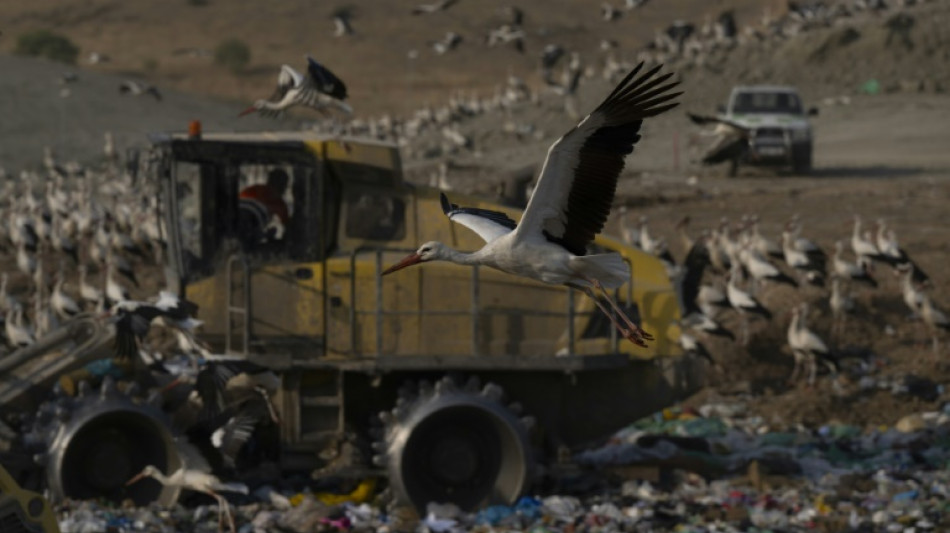
-
 Gu reaches Olympic halfpipe final after horror crash mars qualifiers
Gu reaches Olympic halfpipe final after horror crash mars qualifiers
-
Keller overtime strike gives USA Olympic women's ice hockey gold

-
 NASA delivers harsh assessment of botched Boeing Starliner test flight
NASA delivers harsh assessment of botched Boeing Starliner test flight
-
US Fed Governor Miran scales back call for rate cuts this year

-
 Gu qualifies for Olympic halfpipe final marred by horror crash
Gu qualifies for Olympic halfpipe final marred by horror crash
-
Trump issues Iran with ultimatum as US ramps up military presence

-
 Peru's brand-new president under fire for child sex comments
Peru's brand-new president under fire for child sex comments
-
UK police hold ex-prince Andrew for hours in unprecedented blow

-
 Former Olympic freeski halfpipe champion Sharpe crashes heavily
Former Olympic freeski halfpipe champion Sharpe crashes heavily
-
Former Olympic champion Sharpe suffers heavy halfpipe crash

-
 Belarus says US failed to issue visas for 'Board of Peace' meeting
Belarus says US failed to issue visas for 'Board of Peace' meeting
-
Forest boss Pereira makes perfect start with Fenerbahce rout in Europa play-offs

-
 Alcaraz fights back to book last four berth in Qatar
Alcaraz fights back to book last four berth in Qatar
-
England captain Itoje warns of 'corrosive' social media after abuse of Ireland's Edogbo

-
 War-weary Sudanese celebrate as Ramadan returns to Khartoum
War-weary Sudanese celebrate as Ramadan returns to Khartoum
-
Townsend expects recalled Scotland duo to shine in Six Nations clash with Wales

-
 Peru's new president under fire for child sex comments
Peru's new president under fire for child sex comments
-
UK king opens London fashion week despite brother's arrest

-
 Belarus frees opposition politician Statkevich
Belarus frees opposition politician Statkevich
-
Striking Argentine workers slow down Buenos Aires in protest over labor reforms
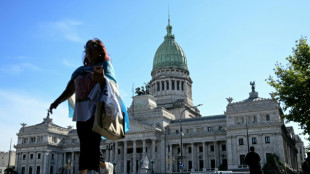
-
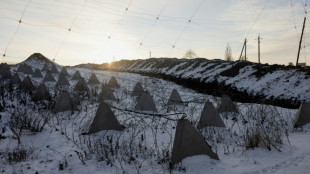 Starlink loss a blow to Russian forces in Ukraine: experts
Starlink loss a blow to Russian forces in Ukraine: experts
-
UN's Sudan probe finds 'hallmarks of genocide' in El-Fasher

-
 Belarus frees opposition politician Statkevich: wife
Belarus frees opposition politician Statkevich: wife
-
Rocket re-entry pollution measured in atmosphere for first time

-
 Airbus ready to build two new European fighters if countries want
Airbus ready to build two new European fighters if countries want
-
Canada makes push to attract skilled migrants, including for defence

-
 US threatens to leave IEA if net zero focus remains
US threatens to leave IEA if net zero focus remains
-
Walmart outlines big AI ambitions as it reports mixed results

-
 Trump kicks off his 'Board of Peace,' as war clouds loom on Iran
Trump kicks off his 'Board of Peace,' as war clouds loom on Iran
-
UK pubs to stay open late if home nations reach World Cup knockouts

-
 TotalEnergies in high-stakes French trial over climate change
TotalEnergies in high-stakes French trial over climate change
-
Bosnia probes fascist salutes at Croatian singer's concert

-
 US and Israel issue dire warnings to Iran alongside US military buildup
US and Israel issue dire warnings to Iran alongside US military buildup
-
British public cheer Andrew's arrest with a smile and relief
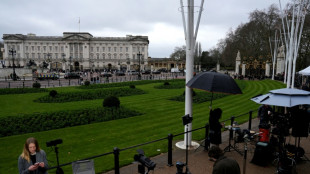
-
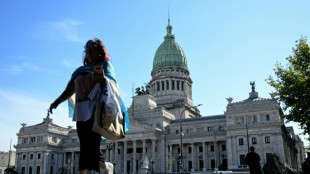 Argentine workers go on strike to protest Milei's labor reforms
Argentine workers go on strike to protest Milei's labor reforms
-
Nakai targets Olympic skating upset as 'skimo' makes debut

-
 What we know about ex-prince Andrew's friendship with Epstein
What we know about ex-prince Andrew's friendship with Epstein
-
US trade deficit in goods widens to new record in 2025
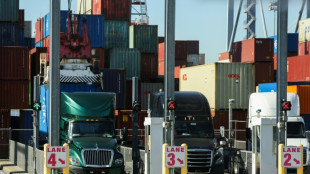
-
 Oil extends gains on US-Iran tensions, stocks retreat
Oil extends gains on US-Iran tensions, stocks retreat
-
Williams 'on the back foot' after missing Barcelona: Albon

-
 Real Madrid submit evidence to UEFA in Vinicius racism probe
Real Madrid submit evidence to UEFA in Vinicius racism probe
-
Olympics rev up Milan's renewal but locals fear price to pay

-
 Cardona Coll, Fatton win Olympic-debuting ski mountaineering sprint golds
Cardona Coll, Fatton win Olympic-debuting ski mountaineering sprint golds
-
MSF will keep operating in Gaza 'as long as we can': mission head

-
 Russian Filippov wins first medal at Milan-Cortina Games for individual neutral athletes
Russian Filippov wins first medal at Milan-Cortina Games for individual neutral athletes
-
Italian Milan takes sprint honours at UAE Tour

-
 Dozens killed in jihadist attacks in northwest Nigeria
Dozens killed in jihadist attacks in northwest Nigeria
-
Zimbabwe unbeaten in T20 World Cup after six-wicket Sri Lanka win

-
 Postecoglou admits taking Nottingham Forest post a 'bad decision'
Postecoglou admits taking Nottingham Forest post a 'bad decision'
-
Switzerland's Fatton wins women's ski mountaineering sprint on Olympic debut


Storks give up migrating to live on landfill in Spain
At a sprawling landfill near Madrid, hundreds of white storks dodge garbage trucks as they look for scraps of food among the mountains of multicoloured garbage bags.
The long-legged birds have traditionally flown from across Europe to African pastures for the winter and returned in the spring.
But the abundant food found in landfills combined with warmer weather are making growing numbers of storks skip this arduous journey and stay in Spain for the winter.
"For us they are part of the landscape," said Carlos Pinto, a sanitation worker at a landfill in Pinto some 30 kilometres (18 miles) south of Madrid.
The landfill receives between 200 tonnes and 300 tonnes of food waste per day and the storks head immediately to the zones "where there is fresh garbage," he added.
The scene is repeated across Spain, with many storks opting to nest close to landfill sites where they live year-round.
In Alcala de Henares, the birthplace of "Don Quixote" author Miguel de Cervantes near Madrid, white storks have become a symbol of the town because they have become so numerous.
"Wherever you look, there are storks," said Almudena Soriano, the town's veterinarian.
Stork nests crown the Alcala's bell towers and the clattering sound they make with their long beaks can be heard throughout the town.
In 1970 the town counted just ten stork nests. A census carried out in 2021 found 109 nests -- a more than tenfold increase -- that were home to up to 300 storks.
- Garbage 'buffet' -
Soriano estimates that "about 70 percent of storks no longer migrate" to Africa, mainly because of the easily available food they can find in Spain in landfills.
This allows them to avoid the dangerous crossing of the Strait of Gibraltar separating Spain from Morocco which measures just 14 kilometres (nine miles) but is often battered by strong winds.
"Many die on the way. The adult storks who have already made the trip do not want to repeat the experience," said Soriano.
"And since they move to find food, an open dump for them is an all-you-can-eat buffet. There is no need to leave anymore."
A 2020 census by SEO Birdlife found 36,217 white storks in Spain.
Before, Spain was just a stop on the birds' annual migration to Africa but now a significant number of white storks spend the winter in the country, according to the NGO.
This includes storks born in Spain as well as those that come from European nations further north like Denmark, Germany and the Netherlands.
Some storks return to northern Europe after winter while others remain permanently in Spain.
Younger storks still have the instinct to migrate to Africa but they make the trip without their parents, said SEO Birdlife ornithologist Blas Molina.
- Climate change -
While the easy availability of food at landfills is the main reasons storks have stopped migrating, it is also "probably due to tendency towards higher temperatures" caused by climate change, the NGO said in a recent report.
Adult storks are staying "a little bit further north" within the Iberian Peninsula whereas before they stopped off in the southeastern region of Extremadura and Andalusia in the south, said Molina.
The change in the stork's migratory habits is a clear example of the "effects of human activity on biodiversity," he added.
The municipality of Pinto is considering covering its landfill site to prevent storks from swallowing plastic and other potentially harmful items. If it does, the storks may leave.
Alcala closed its landfill last year but set up giant feeding stations to ensure the storks had enough to eat and stayed in the town.
The scheme appears to be working as the town's stork populations has held steady.
S.F.Warren--AMWN


